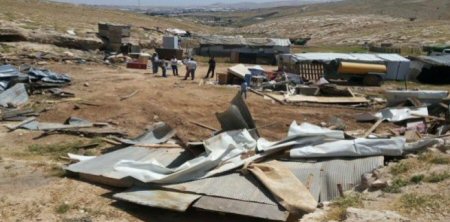Khan al-Ahmar will be destroyed after the Bedouin community is given five days to respond to new relocation options, Israel’s Supreme Court has determined.
The court decided on Aug. 1, according to the PNN, that the demolition of Khan al-Ahmar is inevitable, even though the citizens have shown popular rejection of any relocation plans.
The representatives from the Israeli government gave more options for the relocation of the Bedouin community. But, lawyers working with the Bedouin community have said that these options are unsuitable.
The options included a state-funded water and electrical connection to major facilities in the village’s relocation, near a waste facility in Abu Dis, as well as a new location near the Mitzpe Jericho Israeli Settlement.
The implications of this court decision go much farther than just the few hundred people living in Khan al-Ahmar. The village’s strategic position in the E1 region has Palestinians and Israelis fighting over the land.
E1 is the region between the third-largest Israeli settlement in the West Bank (Ma’aleh Adummim), and East Jerusalem. Evacuating Khan al-Ahmar is the last step before Israel is able to annex the entire region, and entirely close off Jerusalem from Palestinian access to the East Jerusalem area.
Annexing the E1 region also creates the conditions necessary for dividing the West Bank in half, creating three separate Palestinian-controlled areas. Many agree that this act would be the end of any possibility for a two-state solution.
Thousands of activists have attended rallies, protests and preventative acts against the demolition of Khan al-Ahmar. These efforts created enough upheaval during the multiple attempts to demolish the village that courts decided to postpone the decision over and over again until yesterday.
Before the decision, the Khan al-Ahmar area school opened in protest of the proposed demolition. This was an attempt to show the risk of jeopardizing the children’s future and may have established the children’s school as an important bargaining tool in the negotiations.
Hundreds of activists have also been sleeping in the village’s center, each night, creating what they call a protective presence against the chance of human rights abuses against the village.
The court’s decision established an effort to avoid the impression that they are outright forcing the transfer of Khan al-Ahmar’s residents. This comes at a time when the international community has condemned the attempted transfer by force as a war crime.
By creating a more attractive living situation that the residents of Khan al-Ahmar can approve, they would be able to evacuate the village while having plausible deniability of a third forced transfer of the Jahalin Bedouin Tribe.
Forced transfer is condemned as a War Crime by the International Criminal Court, under the Rome Statute of 1998.
The Israeli government’s plausible deniability over allegations of forced transfer is dependent on an agreement with lawyers working to save Khan al-Ahmar. But, with many worrying that a two-state solution will be demolished with the village, the future is still uncertain for the innumerable interests involved.
Search IMEMC: “Khan al-Ahmar”


